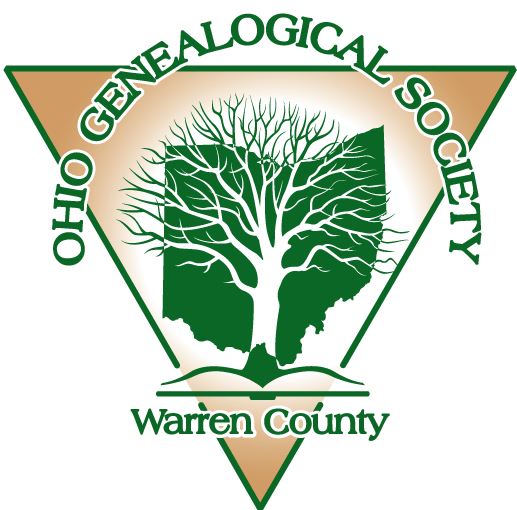|
 |
Warren County Genealogical Society
Warren County, Ohio
Chapter of Ohio Genealogical Society
Will and Estate Records
General Information |
 |
|
(513) 695-1144
 |
406 Justice Drive, Lebanon, Ohio 45036
Hours: 9 AM-4 PM Monday through Friday
Driving Directions |
wcgs@co.warren.oh.us
 |
|
 |
Wills: These records began in the Common Pleas Court in 1803 and
were called OCPís. They were organized by box number and then a number within
the box. The recording of these records continued in the Common Pleas Court
records until the Probate Court was created in 1852. The records were then
organized by starting with box #0 and then arranged alphabetically within the
box. Wills provide proof of kinship by naming
children, grandchildren or other relations. There are three types of wills:
Holographic will (testator writes, dates and signs a will); attested
will (drafted by another party i.e. lawyer); or nuncupative will
(verbal will dictated at deathbed with 2 or 3 witnesses present that petition
the court within a certain number what they heard and put it in writing).
Sometimes these records can provide glimpses to the property owned, religious
beliefs, burial wishes and estate division instructions. Not all will records
have the same contents. Some papers that might be included are as follows:
Letters of Administration, Executorís Bonds, the Will, Inventory, Sale Bill,
and notes for payments of various bills & receipts (such as coffin and funeral
expenses). Executor & Administratorsí reports often contain detailed
information of the income and expenses of the estate and division of money,
land and personal property among the heirs. Married daughters are often
mentioned by their married names. Omissions could occur for any reason but
the most common are 1) the deceased already transferred property to that heir;
2) the heir / child died before the will was created or was born after the
deceasedís death or 3) the heir / child was disowned. Sometimes these records
will reveal the testatorís place of origin if it names relatives who survive
in another country. Make sure to look for people who share the same surname,
they invariably are related. The copybooks for docket of estates (DE),
will record book (WR) and civil dockets (CD) are shelved in their research
room, the originals are secured in the back room.
Estate Settlements: If a person dies without
making a will the estate is considered intestate and the probate judge
appoints an administrator to oversee the estate settlement & distribution.
Estate records prior to 1852 are found in the Common Pleas Court
records (estate record books are called OCPís).
Estate Inventories often are very detailed and include a complete
listing of the deceasedís personís belongings both personal and real. If the
estate was sold, there should be a report that lists who bought each item and
for how much. Sometimes this list is reproduced in the record books. Make
sure to copy the Letters of Administration, Sale Bill and Estate Inventory.
Also check the newspapers to see if a notice was
posted about heirs coming forward to settle the estate.
For information on the probate process or estate
distribution process click here.
©2002-2010 Warren County Genealogical Society
For non-commercial use only
This page was created 12 July 2006 and last updated on
01 September 2010


![]()
